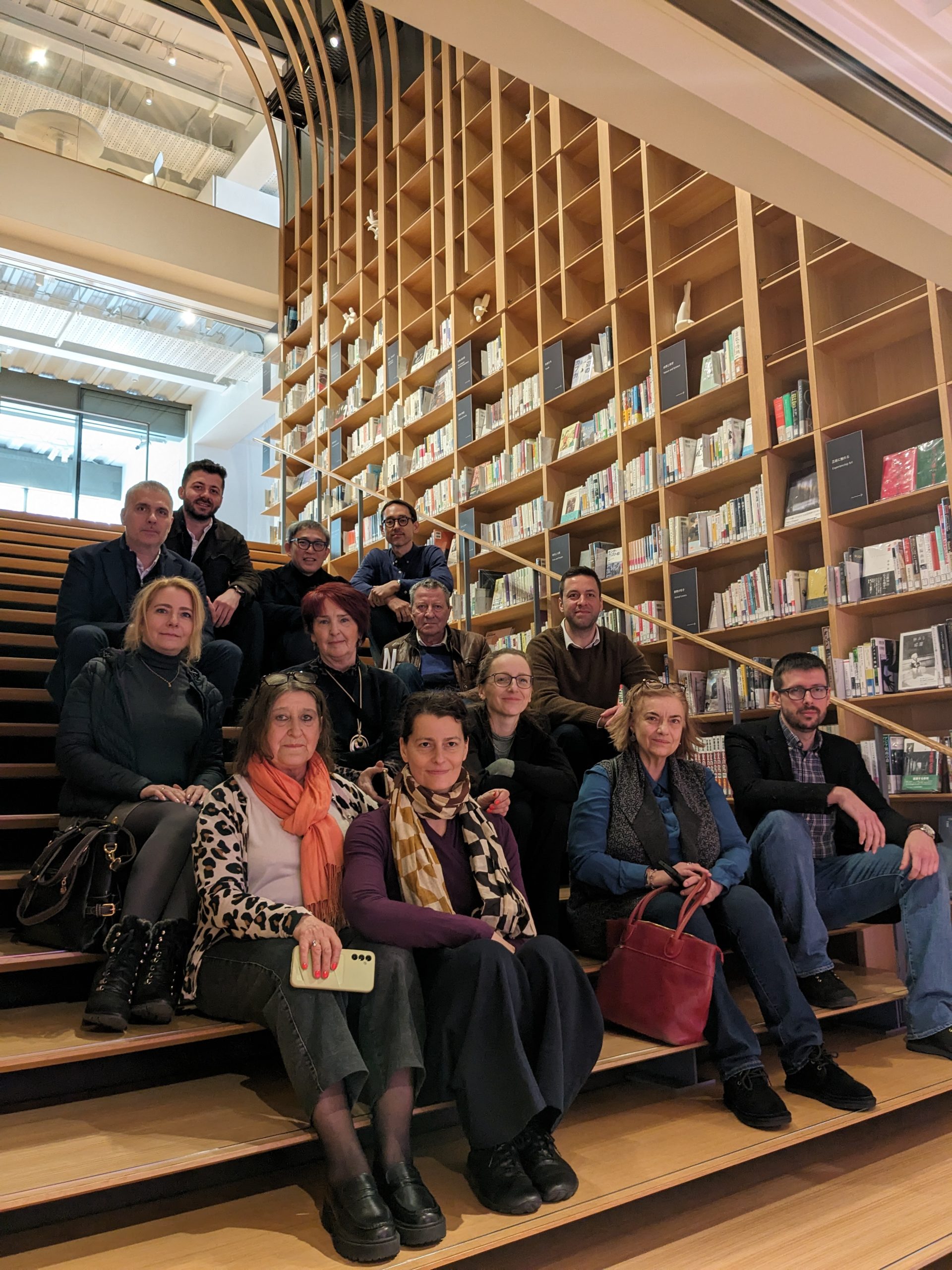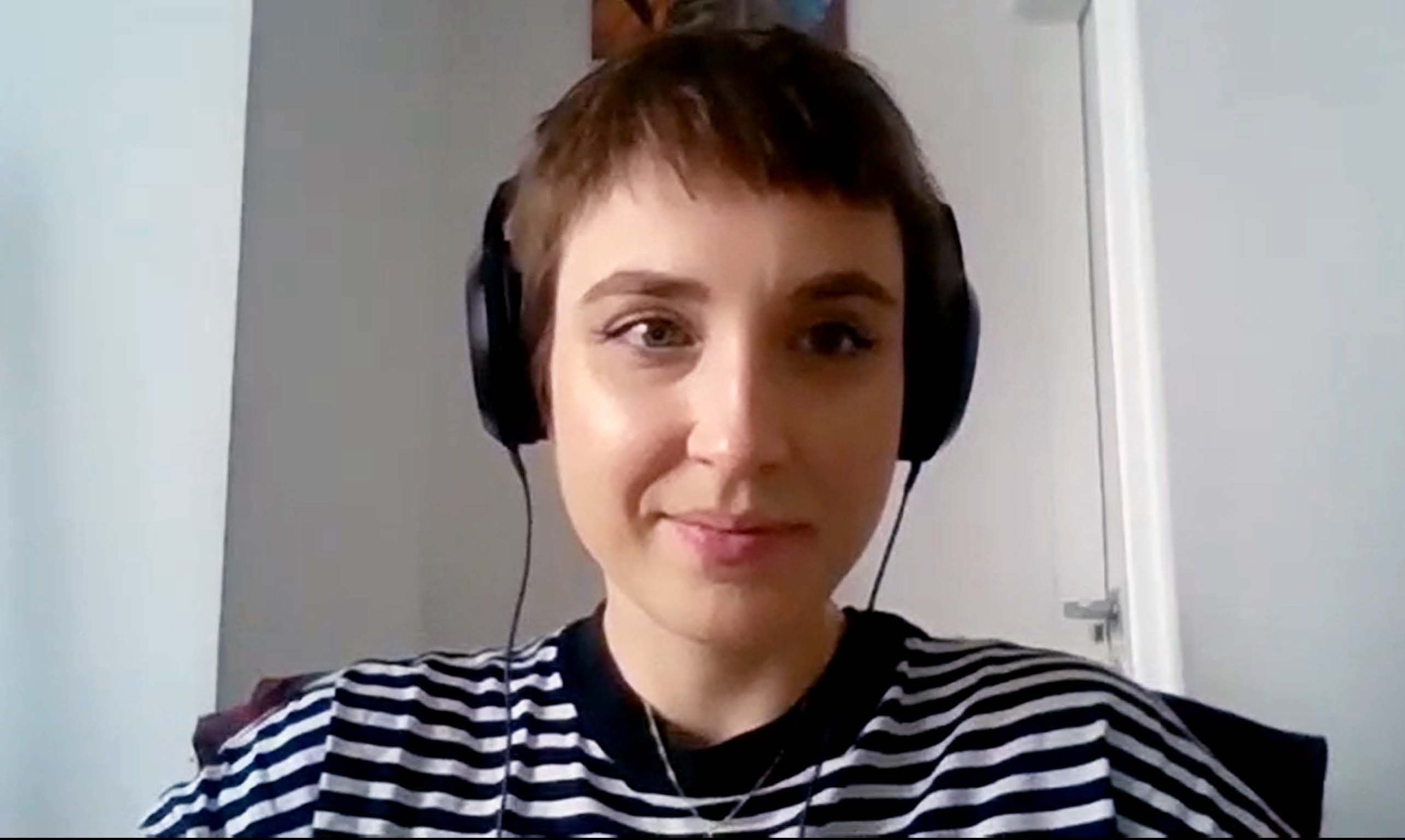Seeking Japanese Authors to Stand Alongside Murakami Haruki
Balázs Éva
Chief Editor, Literary Translator
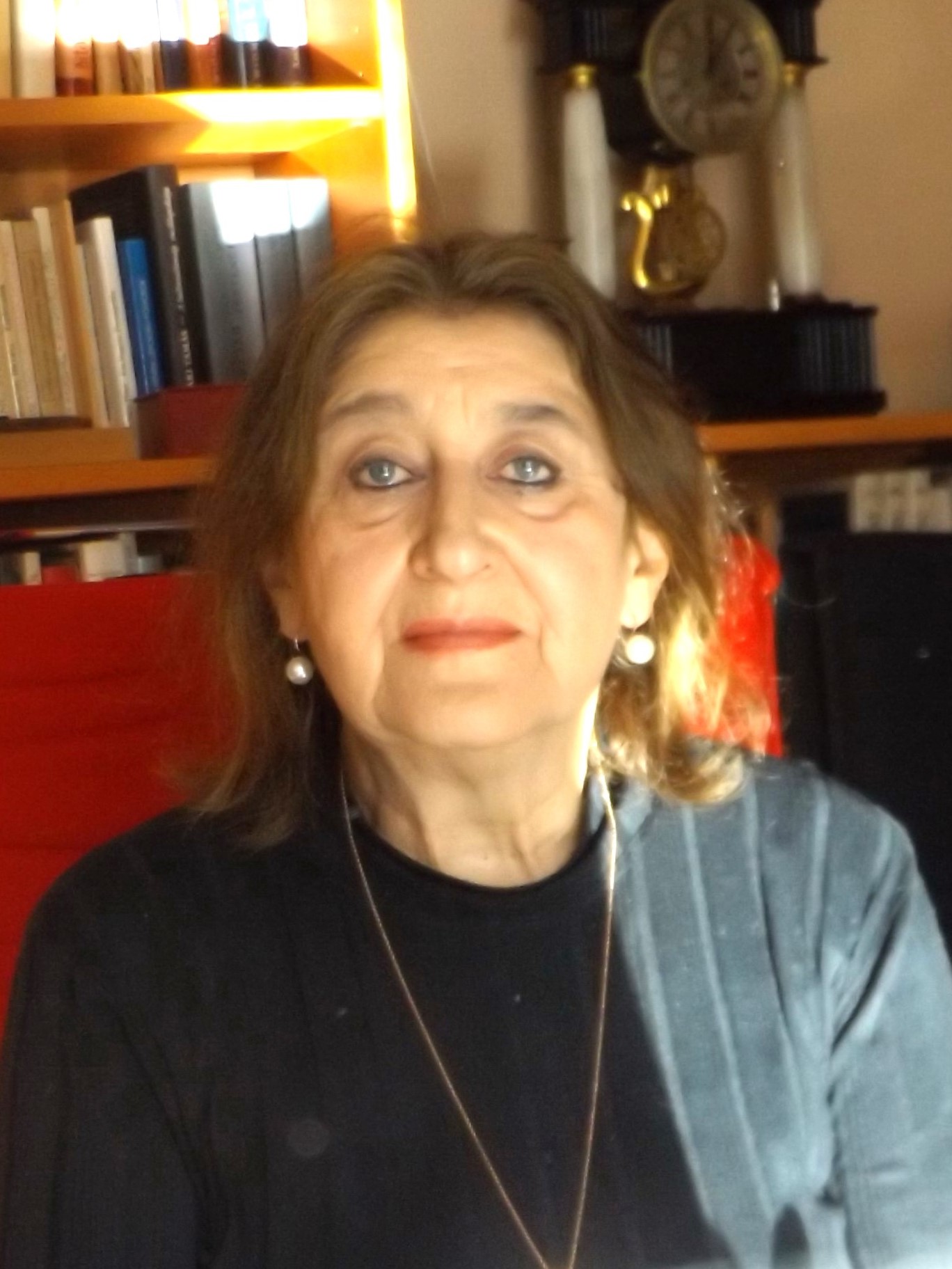
Translations into Hungarian Now Done Directly from Original Works of Japanese
Geopen Publishing House is a Hungarian publisher that opened its doors in 1996. In addition to works of world literature, Geopen also publishes educational books, titles on gastronomy, works on social policy, and more. It has also significantly expanded its selection of children’s and young adult literature in recent years.
The core of Geopen’s catalog of translations from Japanese is the work of Murakami Haruki. Balázs Éva, Geopen’s chief editor and a literary translator herself, has been part of numerous translations from Japanese into Hungarian.
“Hungarian book publishing has been monitoring Japanese literature since the beginning of the 20th century,” Balázs says. “As the whole of the so-called Western world took a growing interest in Japanese culture in general—especially Japanese arts, traditions, and history—Hungarian translations of classical literature began to appear: Murasaki Shikibu’s Genji monogatari (The Tale of Genji), classical poems, and haiku, for example. But even into the 1960s and 70s, very few people in Hungary studied Japanese and even fewer reached the higher levels of literary translation. Hungarian translations were almost always made from intermediate languages, mainly English and German. Today, this situation has changed: more and more people know and use the Japanese language, and you can now choose among Japanese translators in Hungary. Geopen has been the Hungarian publisher of Murakami Haruki since 2005, and we translate all his works into Hungarian from the original Japanese.”
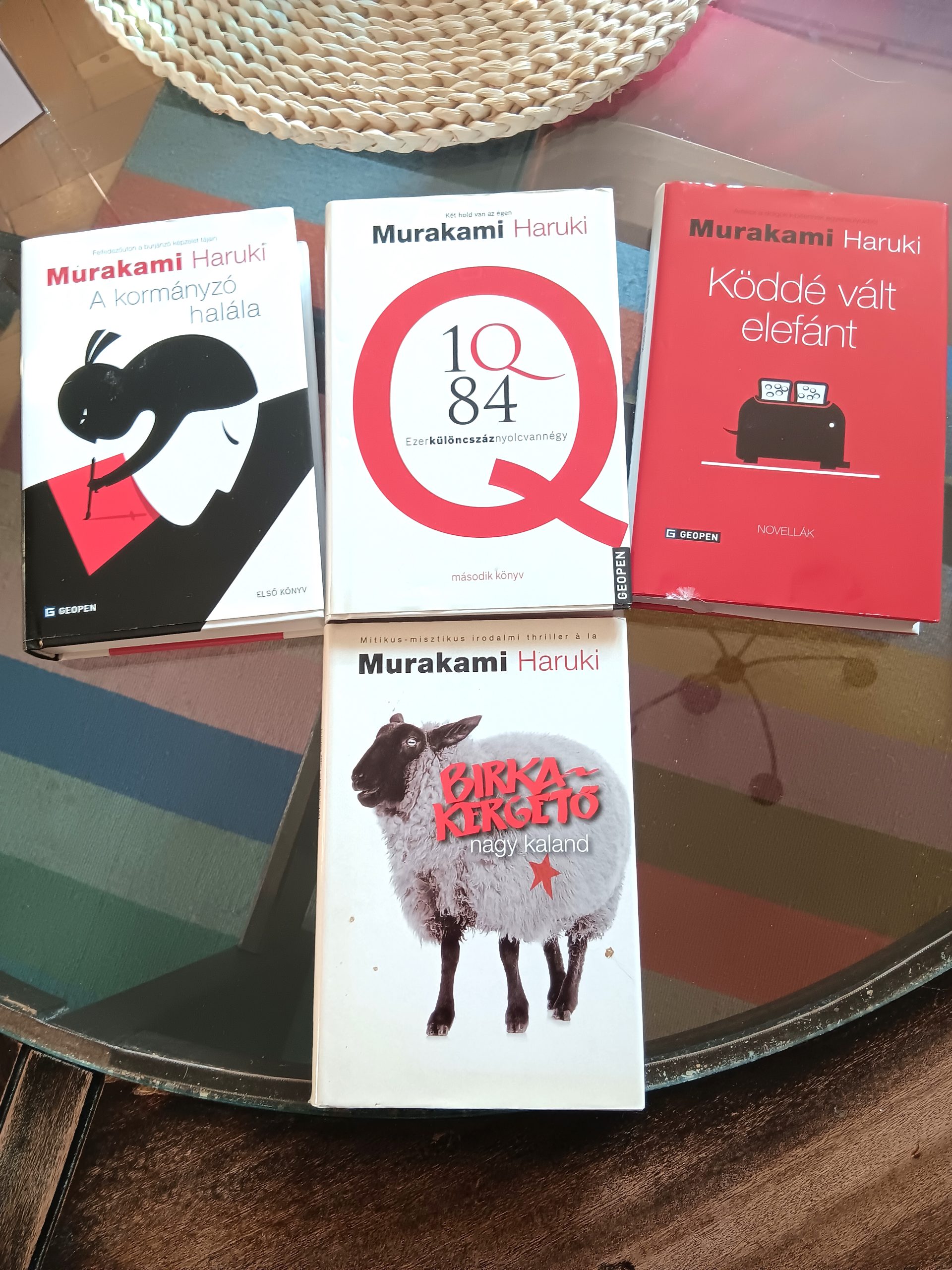
Geopen has published the Hungarian editions of Murakami Haruki’s works.
A Deeper Understanding of Japan’s Publishing World
Balázs was among the Central and Eastern European editors who visited Japan in February 2024. The first event in the program (Central and Eastern European Editors’ Visit) was a lecture on Japanese literature, which she found fascinating.
“The presentation by Abe Ken’ichi, a University of Tokyo associate professor who also translates Czech authors, was extremely thought-provoking. One of the hardest parts about publishing foreign literature is choosing the right works. You can’t simply pick books that have sold well in the Japanese book market. Dr. Abe drew attention to how the selection process has also to do with paratexts, like the cover and preface of a book, as well as prosaic, practical aspects such as the definition of the target group, the timing of publication, and promotion—not to mention grants for literary translations. I found his concise summary of successful, recognized contemporary authors who have been awarded domestic and international awards useful, as well as his remarks on the importance of awards in the selection process.”
Balázs gave high marks to the visits made to the Waseda International House of Literature (the Haruki Murakami Library), the Library of the Japan Foundation, and the Kyoto International Manga Museum as well, stating they were “good and colorful experiences where we could see interesting and important publications.”
And she left us with some ideas for potential improvements in future programs. “Ideally, I would allow more time for informal exchanges of ideas with people at Japanese publishers,” she shared. “I wanted more time to get information on the copyright representation of Japanese books.”

Balázs Éva at the Waseda International House of Literature (Haruki Murakami Library)
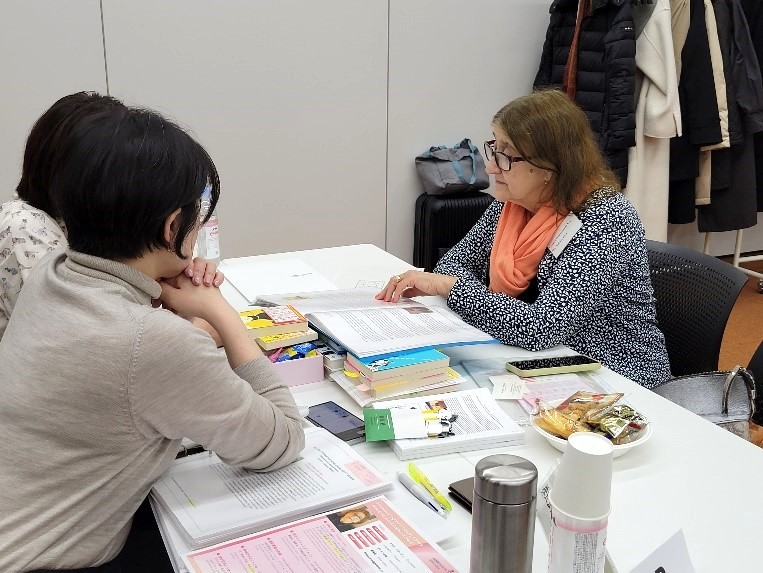
At a networking and social event with Japanese publishers
Boosting the Profile of Japanese Titles in Hungary
While Balázs says that it may be some time before Geopen releases its next translation of a Japanese book in Hungary, she looks forward to helping fresh literary voices make their way there from Japan.
“To enhance the presence of Japanese works in the Hungarian market, we want to select one or two Japanese literary authors,” she says. “I asked for lists of possible names from the publishers I met through the program. I’m hoping to find new Japanese authors that we can introduce to Hungarian readers, and I’m confident I’ll be able to.” One title that caught Balázs’ attention during her time in Japan was Kawakami Mieko’s Natsu monogatari [Breasts and Eggs].
Looking back on her experience, Balázs says that talking to smaller publishers and viewing their offers was undoubtedly the most instructive and interactive part of the program. “It is through these encounters that foreign editors and Japanese editors can make direct contact and develop personal relationships, thanks to which Japanese books can reach even more countries around the world,” she offers.
Balázs considers the community aspect of the program a vital catalyst for future endeavors. “The participants from publishing houses in central and eastern Europe benefitted from the opportunities to meet each other,” she says, “and that sense of connection could be extremely helpful in giving Japanese authors a wider audience across the entire region.”

